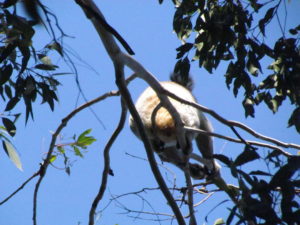 We have important updates on our Bunyah koalas based on data collected last winter. Fresh scats from 25 koalas revealed that over 90% tested positive for Chlamydia pecorum. While this is a significant finding, it’s important to understand that detecting the bacteria doesn’t necessarily mean the koalas are suffering from the disease or showing symptoms. Healthy koalas can carry the bacteria without visible signs of illness. However, this highlights the ongoing threat to their reproductive health and long-term survival in the Bunyah region.
We have important updates on our Bunyah koalas based on data collected last winter. Fresh scats from 25 koalas revealed that over 90% tested positive for Chlamydia pecorum. While this is a significant finding, it’s important to understand that detecting the bacteria doesn’t necessarily mean the koalas are suffering from the disease or showing symptoms. Healthy koalas can carry the bacteria without visible signs of illness. However, this highlights the ongoing threat to their reproductive health and long-term survival in the Bunyah region.On a positive note, the Sunshine Coast University team also assessed the genetic diversity of our koalas. We’re thrilled to report that they have an excellent level of genetic diversity, which is a promising sign for their long-term resilience.
A heartfelt thank you to Detection Dogs for Conservation and the dedicated team at the University of the Sunshine Coast—Dr. Ajith Horane Karayalage, Dr. Katrin Hohwieler, Dr. Alexis Levengood, and Dr. Romane Cristescu. Your hard work is invaluable and will play a crucial role in shaping future regional koala management plans and guidelines.
Stay tuned for more updates as we continue our efforts to ensure the health and survival of these remarkable creatures! 

This project was financially supported by the Australian Government.
@TSCommissioner
@dcceew